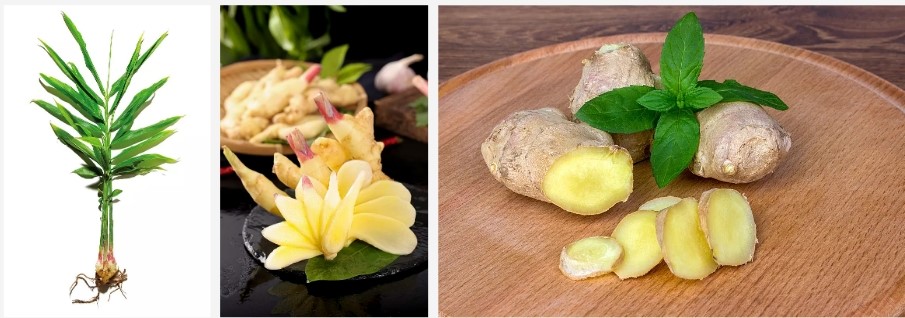Benefits Of Ginger Extract
2024-01-30 13:40:36
Benefits of Ginger Extract
Anti-oxidize Effect
After comparison, X-5 resin was selected to extract, analyze and study the curcuminoids. The results show that at a lower concentration (<0.125mg/ml), the ability of turmeric to scavenge free radicals is stronger (equal to vitamin C of the same standard, even exceeding vitamin C), and the antioxidant activity of unpurified turmeric is stronger than that of the already Purified Turmeric. Rats were fed ginger powder to observe the antioxidant effect of ginger. The experiment was divided into an ordinary control group (basic feed formula), a high-fat control group (high-fat feed formula), a 0.5% ginger group (high-fat feed + ginger powder accounting for 0.5% of the total feed), and 1.0% ginger group (high-fat feed). feed + ginger powder accounting for 1.0% of the total feed). The results showed that compared with the serum of rats in the high-fat control group, the levels of malondialdehyde (MDA) in the rat serum of 0.5% ginger group and 1.0% ginger group were significantly lower, and the content of serum selenium (Se) and superoxide dismutase (SOD), Glutathione peroxidase (GSH-Px) activity were all increased (P<0.01). This shows that ginger has a very strong antioxidant effect.
Anti-inflammatory Effect
A rat model of Alzheimer's disease was created using amyloid. They were randomly divided into two groups, injected with normal saline and Aβ25-35 respectively; after success, the latter was further divided into 5 groups, namely ginger extract low, medium, and high groups, huperzine A group, and a control group. Corresponding drugs were given to each group, and 4 weeks later, NF-KB and IL-1β immunohistochemical staining was used to compare the inflammatory indicators of the rats. Finally, it is concluded that ginger extract can reduce the expression of NF-KB and IL-1β in the brain of AD rats at high doses, that is to say, ginger extract can reduce the inflammatory response at high doses.
Antibacterial Effect
Ginger alcohol extract was studied to inhibit Helicobacter pylori (Hp). Studies have shown that 6-gingerol has a strong anti-Hp effect in vitro, the minimum inhibitory concentration is 1.00mg/ml, and the minimum inhibitory concentration of standard 6-gingerol is 0.02mg/ml. The mechanism may be that 6-gingerol interacted with enzymes required for the growth of Hp and inhibited the growth of Hp. The antibacterial effects of ginger and garlic on Shigella, Escherichia coli, Bacillus cereus, and Staphylococcus aureus were compared. The results showed that garlic had a bactericidal effect on Bacillus cereus, and showed an antibacterial effect on other strains, and the antibacterial time was in the order of Shigella > Staphylococcus aureus > Escherichia coli.
Hypoglycemic Effect
The diabetic kidney injury model was established (the mice were injected with 2% alloxan through the tail vein), and then the ginger alcohol extract was administered through the stomach, which was compared with the mice given normal saline, and the blood was taken after 14 days. The data showed that the blood glucose, serum creatinine, blood urea nitrogen content, and renal tissue malondialdehyde of the mice in the ginger alcohol extract group were significantly lower than those in the normal saline group, while the superoxide dismutase activity index was the opposite). This shows that ginger alcohol extract can reduce blood sugar in mice, and has a protective effect on kidney damage caused by diabetes.

If you would like to learn more, please contact:http://mail to:sxytorganic.com
_1737093401309.png)
